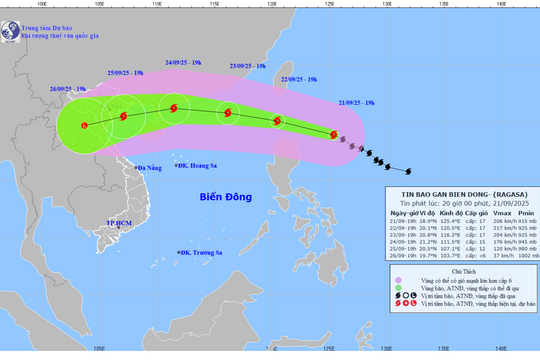June 2016 - record heat on Earth
(Baonghean.vn) - According to NASA, the first 6 months of 2016 were the hottest months in Earth's climate history, setting new records for temperature while global warming is having complex developments.
 |
| The average temperature for the first six months of 2016 continues to set records for heat. Photo: NOAA |
In a press conference, Mr. Gavin Schmidt, Director of NASA Goddard Center said that the average temperature of the first months of this year was too high.
The director of the Goddard Center said that 2015 was a very hot year, but 2016 could be even hotter.
From January to June, global surface and ocean temperatures exceeded the 2015 record by 0.2ºC and the century-old average by 1.05ºC.
According to meteorologists, the first six months of 2016 were the hottest months since humans began recording temperatures in 1880.
Last June was another record-breaking hot month and the 14th consecutive month with record temperatures recorded on the planet.
Meteorologists say this is the longest continuous period of global warming in 137 years.
Mr. Schmidt determined that, during the period from January to June, the average temperature was 1.3ºC higher than the late 19th century level.
Regarding the cause of the above situation, Mr. Schmidt said that the El Nino phenomenon that appeared last year and is about to end contributed about 40% to the record heat compared to 2015.
The remaining 60% is mainly due to atmospheric emissions and a few other factors.
Meteorologists predict that the end of El Nino and the upcoming brief appearance of La Nina will make 2017 less hot, but the global warming trend will continue in the long term.
Notably, global warming has been measured in most parts of the world, especially in the Arctic and on the surface of oceans such as the central and south Pacific, the northwest and southwest Atlantic, and the northeastern part of the Indian Ocean.
And the Arctic is where the effects of global warming can be most clearly observed.
According to scientists, the average ice extent for June was 11.3%, equivalent to 1.3 million km², below the average recorded from 1981 to 2010.
It is known that since the early 1980s, the ice volume has decreased at a rate of 13.4% per decade./.
Chu Thanh
(According to 20Minustes)









